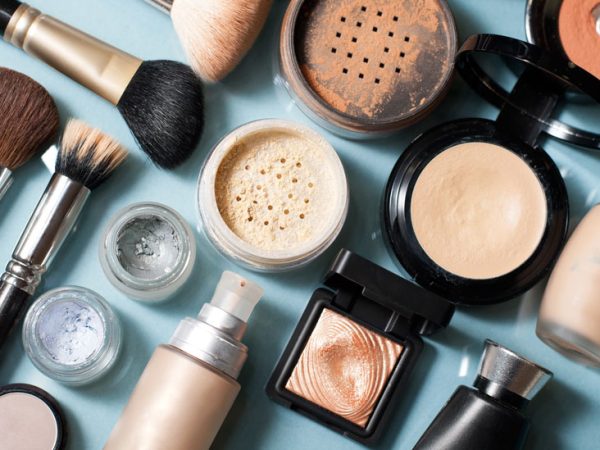As the world of cosmetics expands, the debate around whether makeup harms the skin over time continues to evoke strong opinions. Many individuals embrace beauty products as a form of self-expression, while others trumpet caution, warning about potential skin damage. So, let’s embark on a journey to unravel the complexities of this question. Are we playing a risky game with our beauty routines, or can the art of makeup coexist peacefully with skin health?
Understanding Your Skin: The Basics
Before delving into the effects of makeup, it’s essential to grasp the nature of the skin itself. The skin is the body’s largest organ, a complex barrier that protects against external aggressors and maintains homeostasis. It is composed of multiple layers: the epidermis, dermis, and subcutaneous layer. Each of these layers has distinct functions and responds differently to external products.
As you apply makeup regularly, do consider your skin type. Oily, dry, combination, and sensitive skin each can react differently to various formulations. For instance, oily skin may benefit from oil-free products, while sensitive skin often requires hypoallergenic formulas. The varied responses highlight the importance of tailoring your makeup choices to your unique skin anatomy.
Common Concerns: Clogging Pores and Acne
One of the most discussed concerns regarding makeup application is the potential for clogged pores. Many cosmetic products contain heavy occlusive agents that can trap dirt, oil, and bacteria against the skin. This can lead to breakouts and exacerbate conditions like acne. The challenge lies in distinguishing between makeup that is comedogenic (pore-clogging) and non-comedogenic formulations.
Consider experimenting with different brands and products, and pay attention to labels. Also, be mindful of expirations; using outdated products can induce adverse reactions. Regularly cleansing the skin is foundational. Without a committed cleansing routine, even the best makeup can wreak havoc over time.
Allergic Reactions: The Risk of Irritation
As beauty enthusiasts, we often become loyal to certain products. However, prolonged use can sometimes lead to skin sensitivity or allergic reactions. Ingredients like fragrances, preservatives (like parabens), and alcohol can irritate the skin’s surface, particularly for those with sensitive or reactive skin types. These reactions might manifest as redness, puffiness, or even rashes.
Before introducing new products, conduct patch tests to gauge your skin’s tolerance. Discontinuing use at the first sign of irritation can be a prudent move. Moreover, don’t hesitate to invest in dermatologist-recommended products designed for sensitive skin, thus maintaining your beauty routine while safeguarding skin health.
Long-Term Effects: Aging and Skin Deterioration
The pursuit of youthful skin often influences our cosmetic choices. Ironically, some products that promise to fight aging may contain dehydrating ingredients that ultimately accelerate skin aging. For instance, formulations high in alcohol can strip away essential moisture, leading to dryness and the appearance of fine lines.
Moreover, environmental stressors compounded by makeup use, such as pollution or UV exposure, can exacerbate skin aging. Antioxidants and sun protection factor (SPF) should be non-negotiable components of your skincare arsenal. Opting for makeup with added SPF can serve as an additional line of defense against photoaging.
Makeup Hygiene: The Overlooked Factor
Have you ever considered how clean your makeup tools are? The cleanliness of brushes, sponges, and applicators is frequently overlooked but plays a crucial role in overall skin health. Contaminated tools can harbor bacteria, leading to breakouts and other skin issues. Proper hygiene involves regularly cleaning your brushes and swapping out sponges to maintain a healthy application environment.
Additionally, be aware of the importance of replacing makeup products regularly, particularly those with a shorter shelf life. Nail polish, liquid eyeliners, and mascaras should be replaced frequently to prevent bacteria buildup and subsequent skin reactions.
Embracing Prevention: A Balanced Perspective
Can we reconcile our love for beauty with a healthy relationship with our skin? Absolutely. The key is moderation and mindful application. Choosing quality over quantity—opting for fewer, high-quality products over a myriad of subpar options—can make a significant difference. In addition, incorporating erratic skin-care elements, such as regular exfoliation and hydration, goes hand in hand with cosmetics use.
Moreover, it’s essential to listen to your skin’s needs. Does it feel tight or flake after applying a specific foundation? Perhaps it’s time to switch up your routine. By engaging with your skin actively, rather than taking a passive approach, you can foster a beauty regimen that enhances your natural radiance instead of detracting from it.
Conclusion: The Final Word
The conversation surrounding makeup and skin health is nuanced, entwined with personal choices and skin types. While makeup has its risks, understanding these potential pitfalls equips individuals to make informed decisions that balance beauty with skin wellness. By adopting a sensible approach and remaining vigilant about product choices, skincare hygiene, and skin reactions, one can enjoy the joys of cosmetics while promoting a lifetime of skin health.
So, are you up for the playful challenge of nurturing both your beauty and your skin? It’s a journey worth embarking on, with the potential for rewarding discoveries along the way.

